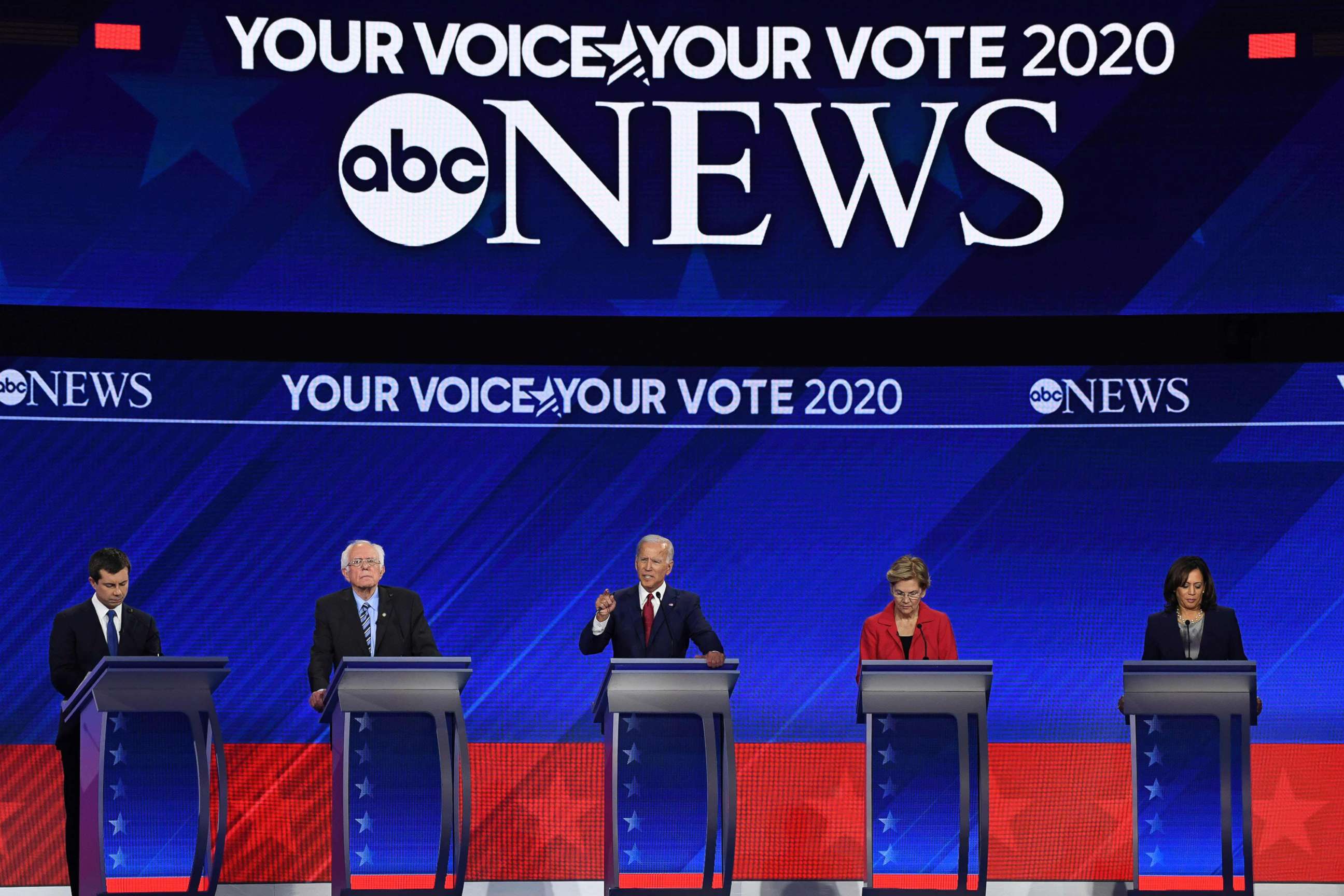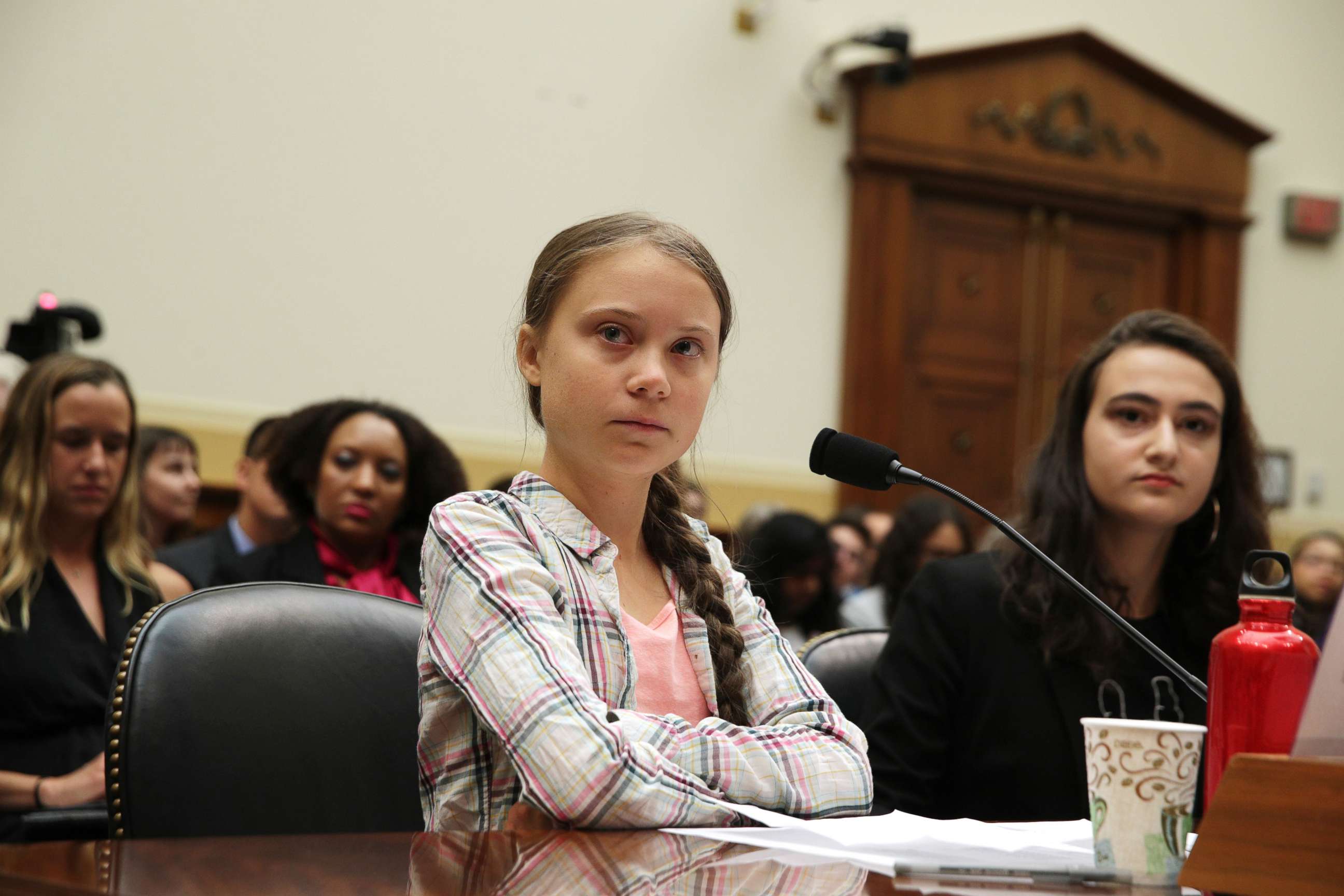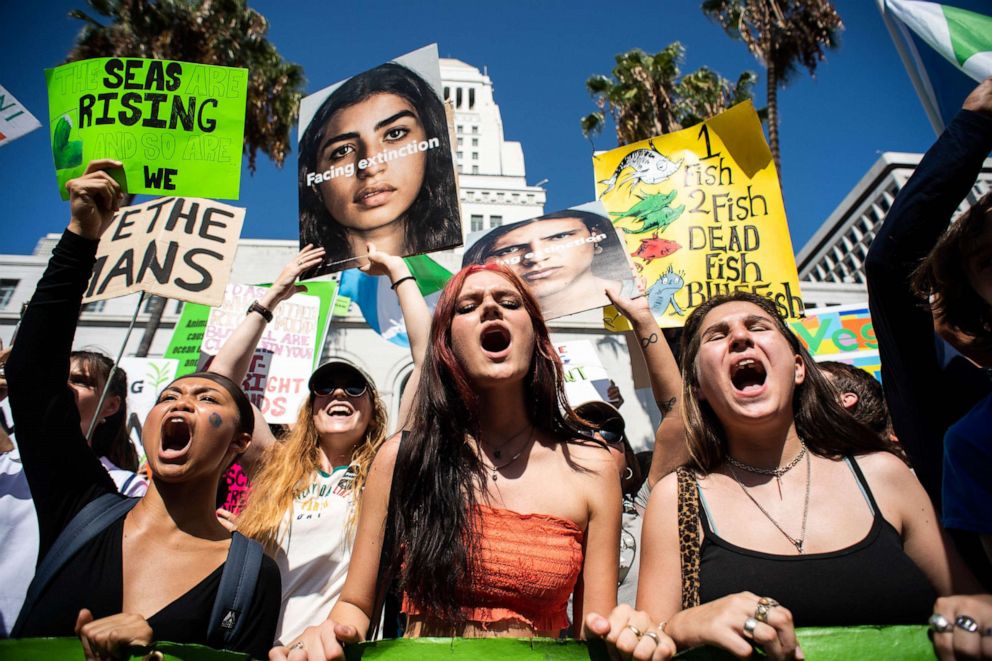2020 candidates give more attention to climate change than in past elections
Climate change has largely been absent from presidential politics until now.
The 2020 Democratic candidates discussed the environment for nearly 43 minutes while on the debate stage this presidential election cycle, an unprecedented amount compared to past elections.
During the 2016 presidential debates, Hillary Clinton and Donald Trump spent less than six minutes discussing climate change. In the 2012 election cycle, the New York Times reported that Barack Obama and Utah Sen. Mitt Romney avoided talk about climate change altogether.
But approaching the fourth Democratic primary debate next week, amid a furious push from progressives and environmentalists, climate change is emerging as one of the 2020 election cycle’s most pressing issues.
"What the president of the United States should do is not deny the reality of climate change, but tell the rest of the world that instead of spending $1.5 trillion on weapons of destruction, let us get together for the common enemy," said Vermont Sen. Bernie Sanders June 27 during the first Democratic debate in Miami. "And that is to transform the world energy system away from fossil fuel to energy efficiency, and sustainable energy."

One of the first 2020 candidates to beat the drum for climate change was Washington Gov. Jay Inslee, who pressed the Democratic National Committee to dedicate one of its presidential primary debates solely to the issue of climate change -- an initiative the DNC turned down.
"While climate change is at the top of our list, the DNC will not be holding entire debates on a single issue area because we want to make sure voters have the ability to hear from candidates on dozens of issues of importance to American voters," DNC Communications Director Xochitl Hinojosa said in a statement.
Inslee pulled out of the race in August, but his environmental policies and diatribe against the Trump administration's lack of emphasis on combating climate change have made lasting impact in the election, pushing the candidates to become more progressive on the issue and more proactive in their policies.
As the Democratic pool narrows, nearly all of the remaining candidates have now announced plans to address climate change, most of which pledged to achieve "net zero" emissions by 2050.
Thai Jones, a Columbia University history professor specializing in radical social movements, told ABC News that this change in conversation has been spurred by "alarming" scientific discoveries and what he called resulting feelings of fear, anger and passion for legal action.
"We have known it has been an emergency for at least 10 years. But really, it was totally absent from presidential politics until this round of debates," Jones said. "So what has changed between then and now?"
"The answer," he said, "is activism."
Rafe Pomerance, one of the earliest environmental activists to bring attention to climate change on Capitol Hill, told ABC News he's seen politicians' attitudes towards the environment change drastically since he began his efforts in the 1980s.
Pomerance explained how 40 years ago, he was still trying to convince lawmakers that climate change was real.
"It was impossible to organize," he said. "There was not potential for a big grassroots outpouring."
Minimizing the issue during the 2020 presidential debate is "just not possible anymore," as Pomerance pointed out, for two reasons.
First, recent scientific discoveries -- such as rising sea levels, increased wildfires and degradation of the Amazon rainforest, untimely earthquakes and hurricanes, as well as significant temperature changes -- are issues that can't be ignored, he said.
Second, he said, is the "fact that young people are highly organized, and they have helped to vault the issue into the presidential campaign."

Swedish environmental activist Greta Thunberg, 16, inspired the Sept. 20 global climate strike -- a protest that took place in 150 countries across the world and gathered the support of millions of people. Thunberg made her case in a speech before world leaders at the United Nations Climate Action Summit on Sept. 24.
"People are suffering, people are dying, entire ecosystems are collapsing," Thunberg told them. "We are in the beginning of a mass extinction, and all you can talk about is money and fairy tales of eternal economic growth."
Another activist, Katie Eder, 19, told ABC News she created the Youth Climate Strike Coalition in June of 2019 as an opportunity to organize a new generation of people eager to protest climate change. The coalition is an organization that acts as a"connective tissue" among eight of the largest youth-led climate groups in the United States, she said.
"The conversation is starting to shift in real time, which I think really speaks to the power of what's happening on the streets," Eder said. "The pressure's starting to move the needle and I think we're going to see it happening more and more, and continue to snowball, until we see the solutions we need."
Efforts by the younger generation seem to have made a significant difference, Eder said, as the 2020 candidates begin to talk more about climate change in real time.

A second global climate strike took place in Iowa City, Iowa on Sept. 27.
"We need to work on every front on climate change. It is the threat to every living thing on this planet and we are running out of time," Massachusetts Sen. Elizabeth Warren said during the Sept. 12 debate hosted by ABC and Univision.
After the strikes, Eder said she's also seen politicians keeping the conversation going through social media.
Warren took to Twitter last month to show her full support of the young adults' climate activism.
"The youth-led climate strike and the solidity strikes … show that our country is ready to fight for the big, structural change we'll need to tackle the climate crisis," Warren said in her tweet.
Eder said she's seen firsthand the results of conversations in recent climate legislation proposals by lawmakers, such as the "Green New Deal" sparked by New York Rep. Alexandria Ocasio-Cortez and Massachusetts Rep. Ed Markey.
Former Vice President Joe Biden has also added tackling climate change to his political to-do list.
"I refuse to postpone any longer taking on climate change and leading the world in taking on climate change," Biden said Sept. 12. "We're the best-equipped nation in the world to take this on. It's no longer time to postpone. We should get moving."
Dr. Anthony Leiserowitz, director of the Yale University Program on Climate Communication, told ABC News that the young generation of activists are owning the issue because they feel their futures' are the most vulnerable.
Leiserowitz explained that while the younger generation of activists may not have the power to vote quite yet, they will be even more powerful in the 2020 elections than the voting bloc.
"We call this the silent majority," he said.




